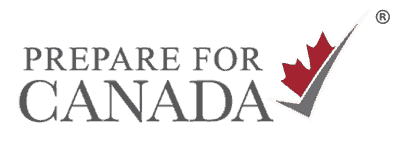
One of the first things new immigrants want to establish when they move to Canada is somewhere they can call home. Your ability to buy a home and qualify for a mortgage is tied together if you do not have the funds to purchase a property outright.
You will need to meet certain financial criteria as set out by Canadian banks and financial institutions. This may seem intimidating and even challenging, largely because of misconceptions.
Advertisement:
There is a belief that newcomers cannot get a mortgage from a Canadian bank, they won’t qualify if they don’t have a strong credit history or they won’t qualify until they have a couple of years of employment history in Canada. These are not true.
Advertisement:
There are many immigrants who qualify for mortgages every day. In fact, did you know that 18% of mortgage consumers are newcomers to Canada?
Requirements for Newcomers to Qualify for a Mortgage
Financing is available to both permanent and non-permanent residents. However, qualifying for a mortgage will depend on your status. Here is an overview of mortgage requirements:
Permanent Resident Mortgage Requirements
As a permanent resident, you will have access to a variety of mortgages and programs. You could qualify for a standard mortgage if you have a good credit rating. This means one of the applicants must have a credit score of 680 or higher. You will also require at least a 5% down payment.
If you do not have a good credit score, you can still qualify for a mortgage through a newcomer to Canada program. You will still require a minimum 5% down payment.
If you are paying less than 20% of the cost of the purchase price, you will have to get mortgage loan insurance.
Advertisement:

Related Posts:
5 Tips to Get the Best Mortgage Rates in Canada
How Much Mortgage Can I Afford?
Building Credit History in Canada
Tips to Maintain a Good Credit Report in Canada
Banking and Finance in Canada | Your Financial First Steps
Non-Permanent Resident Mortgage Requirements
As a non-permanent resident, you have specific requirements to qualify for a mortgage. For example, you must:
- be legally authorized to work in Canada
- have a work permit
- purchase a property you will live in
- put down a minimum of a 10% down payment.
With a good credit rating, you could qualify for a standard mortgage. If you do not have established credit in Canada, you may have to get a letter of reference from your financial institution from your country of origin. You will need to qualify under a new to Canada program.
You will not qualify for a mortgage if you are not a permanent resident, have poor credit, and do not have at least a 10% down payment.
What Lenders Review When Qualifying for a Mortgage
Your Income:
When applying for a mortgage, a lender will review your income. This can be from many sources as long as the income is plausible, such as income from full or part-time employment, self-employment, rental properties, support or alimony payments, or pensions.
The lender will require a letter from your full or part-time employer to confirm income, especially if you have had the job for less than two years. You should have copies of your last two year’s tax returns and be up-to-date with any outstanding taxes.
Your Debt:
The lender will also look at your debts, including your proposed house payment, as well as monthly payments for loans, credit cards, car leases or child support. It is important that you include all debts you have on your mortgage application as they can impact your ability to borrow.
Your Employment History:
Evidence of regular income is another critical factor lenders consider. They are more inclined to favor applicants who have worked at one job continuously for several years or have remained in the same field. However, you can still qualify for a mortgage if you’ve changed jobs recently as long as your new employer can prove your income with a Letter of Employment to confirm your:
- Date of hire
- Position
- Rate of Pay
They may also ask for recent pay stubs to confirm your rate of pay.
If you’re self-employed or have worked at a job for less than two years, lenders may ask for additional information, such as federal income tax statements, to verify your income.
Your Credit History:
To qualify for a mortgage, a good credit rating is essential. In addition to reviewing your debt and income, a lender will also pull your credit report. The report details your payment history and how you’ve handled your past obligations. You can get a copy of your credit report before you apply for a mortgage to veryify its accuracy or correct any errors before you apply for a mortgage. However, each credit “pull” will negatively impact your credit score for a short period of time, so avoid pulling your credit too often.
Tips To Qualify for a Mortgage In Canada
Qualifying for a mortgage ensures that you meet certain criteria set out by lenders. Here are the main steps you will need to take to qualify:
Save for a Down Payment to Qualify for a Mortgage:
You will have to put money down on any mortgage. The more you save, the better position you will be in to qualify for a mortgage.
Establish Credit in Canada:
As soon as you arrive in Canada, its important to start building your credit history. A strong score will not only help you qualify for a mortgage, but it will also help you get a better rate. You can do this by paying your bills in full each month, use and pay off your credit cards, and maintain a consistent source of employment income.
Have Proof of your Financial Situation to Qualify for a Mortgage:
Lenders want to see proof of a stable financial situation. To do this, you can get a letter of reference from your financial institution, an employment letter from your employers, and show copies of recent pay stubs.
Shop Around:
There are plenty of mortgage options. You can choose from traditional banks, to credit unions, and private lenders. You can also enlist the services of a mortgage broker to help you qualify. Brokers work for you, and they will shop around and compare options for you. They can be a big help to find the right mortgage for your specific needs.
Getting a Pre-approved Mortgage? 4 Tips to Consider
A pre-approved mortgage indicates how how much mortgage you can afford and guarantees a mortgage rate (usually for 90 – 120 days) while you look for a home.
A pre-approved mortgage can give you more credibility to sellers and real estate agents, And in bidding wars, common in hot housing markets, it can give you an advantage against competing home buyers. However, be sure to consider these tips:
1. Know the Difference: Pre-qualified versus Pre-approved
Understand the difference between pre-qualification and pre-approval. For example, pre-qualification is less formal and confirms that you meet general lending guidelines. And sometimes you can obtain a pre-qualification over the phone or through an online assessment.
On the other hand, a pre-approval is a detailed process and takes more time to complete. You need to complete a mortgage application and provide documents to verify things such as your income, debt, employment, and credit history.
A lender will review your application before they pre-approve you.
2. Watch Your Finances after Pre-approval
Don’t let your guard down after you get pre-approved for a mortgage. Missing or skipping credit card payments, increasing debt, or changing jobs could void your pre-approval.
3. Reset Pre-approval Rates
If rates remain low and you’re still searching for a home, you can reset your pre-approval every 45-75 days. Doing so will not only extend your rate hold but will safeguard you against any mortgage rate hikes before you close. Although, some lenders may restrict rate resets.
4. Know the Pre-approval Terms
Shop around and choose pre-approval terms that offer you the most benefits. For example, opt for the longest rate hold (120 days), and other mortgage features such as the ability to make prepayments, fair penalties, and refinancing options.
Qualifying for a mortgage can be an intimidating process, but it does not have to be this way. There are countless ways for newcomers to get approved for a mortgage. It happens every day. You just need to know the steps and understand the financial criteria you need to meet to qualify. Start working toward qualifying from the day you move to Canada, and you will be a homeowner sooner than you think.
For more information about your financial first steps in Canada, visit our banking in Canada resource page. Get the essential information you need to manage your finances in Canada!

